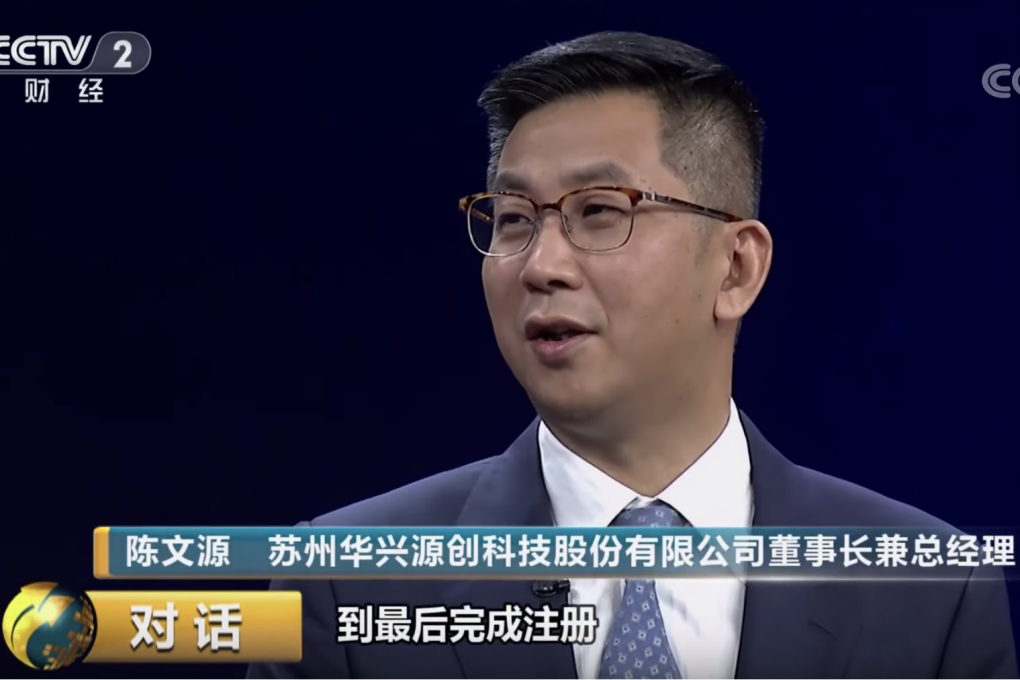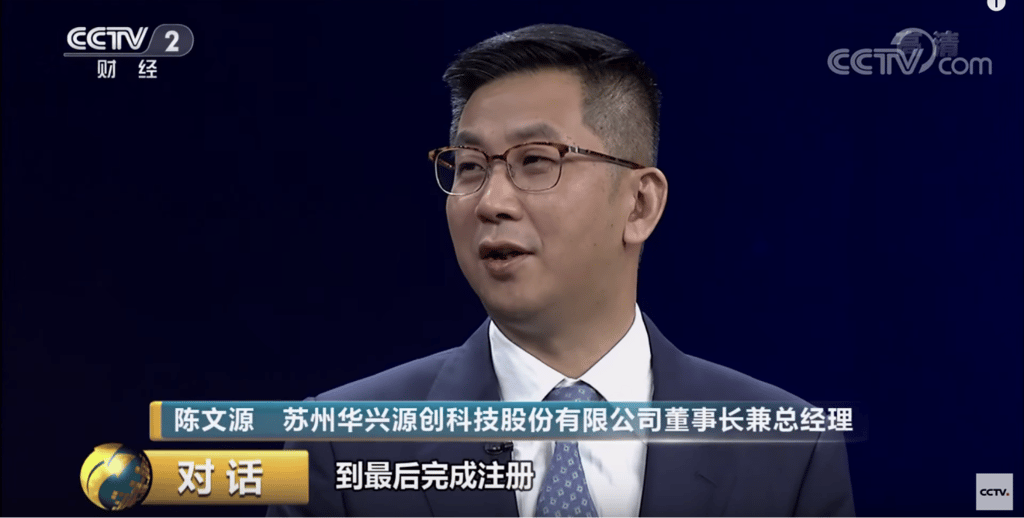How China’s new Star Market made Chen Wenyuan a billionaire
A freshly-minted billionaire in 2019, Chen is the founder of Suzhou HYC Technology -- a supplier for the likes of Apple and Samsung, selling test equipment for electronic displays. His company was among the first batch to list on China’s Nasdaq-style Star board in July 2019.

Chen Wenyuan began his career as a technician, like many others of his generation, coming of age just in time to catch the glory days of China’s manufacturing boom.
This summer, thirty years since he first stepped foot in a magnet wire plant, 50-year-old Chen is now a freshly minted member of China’s billionaires club. He's the wealthiest among a crop of founders whose companies became the first to list on the country’s new Nasdaq-like market.
His meteoric rise from a nameless face in a factory to the flashiest name in Shanghai’s Star Market can be traced back to one fateful decision in 2005. Back then, armed with less than US$150,000, Chen and his wife Zhang Qian started Suzhou HYC Technology. They were both under 40 at the time.

The company is far from a household name, but chances are the smartphone you’re holding to read this story right now might have been manufactured with the help of HYC. The firm makes test equipment for flat panel displays like LCDs and OLEDs, commonly found on phones and TVs. It counts Apple, Sharp, Samsung and LG as some of its biggest customers.
But success seemed distant at first.
During the company’s early years, struggling to come up with enough capital, Chen put up all his real estate as collateral for bank loans. The practice unnerved his wife, who learned that the loans had to be renewed every year.